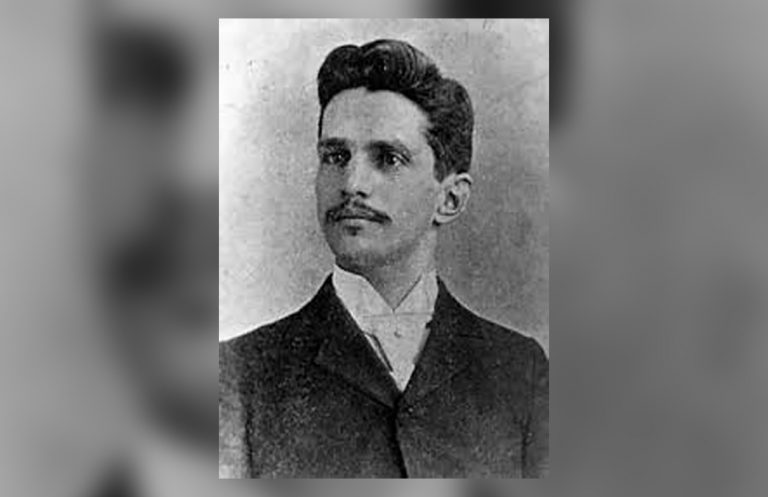On November 15th, 1895, the Invading Army, under the command of Antonio Maceo, camped at the Matilde farm in Najasa, which belonged to José Ramón Simoni, father of Amalia Simoni.
The house was a Spanish camp hastily abandoned in the presence of the troops. Inside the building, the mambises come across various insults to Cuban patriots and a Spanish flag in a window, with some verses underneath, that had nothing to do with those expletives.
Enrique Loynaz del Castillo asked to leave the writing, alleged that the words and art under any flag needed to be respected because they represented an universal heritage and were alien to the conflict of men. Instead, on the other side of the window he drew the Cuban flag and underneath the verses of what moments later would be sung with vehemence and would become the Invading Hymn.
Loynaz himself says that the house was instantly filled with patriots who copied those verses on any piece of paper they had with them, some of which as the campaign progressed were modified by him in order to not intensify unnecessary hatred.
Maceo ordered Loynaz to hand over the verses to Captain Dositeo Aguilera so that the two of them could make the musical adjustments and the Army Band would sing it. Half an hour later it was finished.
This is how the Invading Hymn was born, in the presence of Antonio Maceo, the President of the Republic Salvador Cisneros Betancourt and the Government Council, the hymn that accompanied the mambises throughout the Invasion of the West, the one that the patriots hummed on the back of his horse when they faced the slug of the rifles and the coldness of the bayonets.
INVADING ANTHEM
Lyrics: Enrique Loynaz del Castillo
¡A las Villas valientes cubanos!:
A Occidente nos manda el deber.
De la Patria a arrojar los tiranos.
¡A la carga: a morir o vencer!
De Martí la memoria adorada
nuestras vidas ofrenda al honor
y nos guía la fúlgida espada
de Maceo, el Caudillo Invasor.
Alzó Gómez su acero de gloria,
y trazada la ruta triunfal,
cada marcha será una victoria:
la victoria del Bien sobre el Mal.
¡Orientales heroicos, al frente:
Camagüey legendaria avanzad:
¡Villareños de honor, a Occidente,
por la Patria, por la Libertad!
De la guerra la antorcha sublime
en pavesas convierta el hogar;
porque Cuba se acaba, o redime,
incendiada de un mar a otro mar.
A la carga escuadrones volemos,
que a degüello el clarín ordenó,
los machetes furiosos alcemos.
¡Muera el vil que a la Patria ultrajó!
Translated by: Aileen Álvarez García






